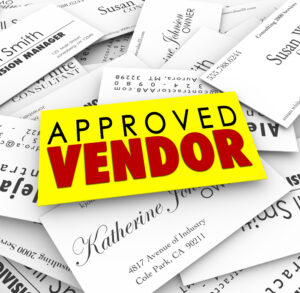What should I know when selecting a contractor to make repairs?
Have you had an insurance claim and now you need to interview contractors to make repairs? Maybe in a past experience you have hired contractors and they have taken forever to complete projects?
We have some tips on how to choose the right contractor for the job.
If you’ve gone through the process to file an insurance claim, sent the right documentation, met with an adjuster and worked closely with your accredited claims adjuster (ACA) every step of the way don’t give up on that relationship quite yet. Your ACA can be a great resource for finding the best contractor to complete your repairs.
Though only you can authorize any contractor to proceed with work on your property, your ACA can often share a list of recommend contractors, usually called an approved contractor or approved vendor list. If your ACA doesn’t automatically provide this, you can ask for it.
Your accredited claims adjuster may also tell you, you can also choose a contractor of your choice to perform the repair work; however, if you choose a contractor from their preferred vendors list, they can guarantee the work and arrange repairs if the work is not completed properly for any reason. These contractors are usually independent and do not work for your insurance company. You would hire the contractor and ultimately, they work for you.

There are several benefits to going with the preferred contractor:
•Insurance companies will complete background checks on all contractors they recommend.
•Contractors on an insurer’s preferred vendors list agree to complete the repair work at the price approved by your insurance company, which means unless you change the scope of work, you won’t pay any extra.
•The quality of work is guaranteed by your insurance company.
There are a few drawbacks for using a preferred contractor:
•Usually, the contractor decides the scope of work, however, in the case of an insurance claim, the insurance company working with an accredited claims adjuster sets the scope of work. In some cases, if the contractor may only go with the insurance company scope of work even when additional work may be necessary. Though your insurance company may cover extras, this may increase the timeline for completion.
•Your options are limited. Preferred vendor lists can change quickly. A few dissatisfied customers, one incomplete project, or major concerns such as having to redo the project can remove a vendor from the list.
Even if you plan to use someone from the approved vendor list, get more than one estimate. Meet more than one to see if they are a good fit and you would like the contractor to spend time in your home or working with your vehicle or other property. Ask your friends and family members for recommendations too.
Review the contractor’s prior work and their portfolio. A good contractor will have a portfolio of work that shows what they do well. You should also check out their website and social media accounts to see if they have any reviews or testimonials. If a contractor is proud of the work they do, they will show it off. Check their Google Reviews too.


If you find a contractor on the approved vendor list whose work you like, ask them for references. This will give you an idea of how other clients feel about their service. But don’t just rely on their references, search the contractor by name and company name in your favorite search engine. Try to go to at least page four or five of results in the search engine to get a good feel for their work and work with customers.
No matter what, make sure the contractor you select is licensed, bonded and insured. You will want to work with a contractor who is up to date on current building codes, ordinances, laws, or regulations that affect the repairs of your property.
Want to help others find the best contractor for an unexpected event?
You may want to consider a career as an accredited insurance claims adjuster. At Educational Services & Consulting we can help you with that. We offer designation courses for both the 6-20 Accredited Claims Adjuster (ACA) and the 4-40 Registered Customer Service Representative (RCSR) designations. Once you take our final exam for either course, the Florida state exams are waived, and you can apply for your Florida state license. With our 6-20 ACA designation, once you receive your state license you will be considered an all lines adjuster. This will enable you to work on home insurance claims, auto and RV insurance claims and property insurance claims. You would have the flexibility to work as a staff claims adjuster or an independent insurance adjuster.
For more information on how to earn your 6-20 ACA designation or your 4-40 RCSR designation we invite you to call our Clermont, Florida office at 1-800-309-2459 or read more about the certification process on our website.
